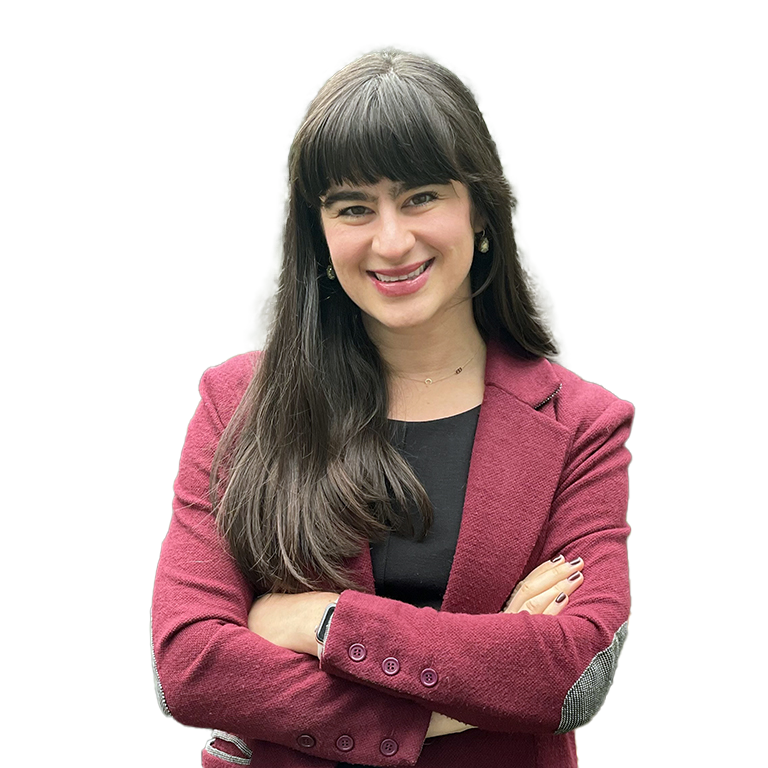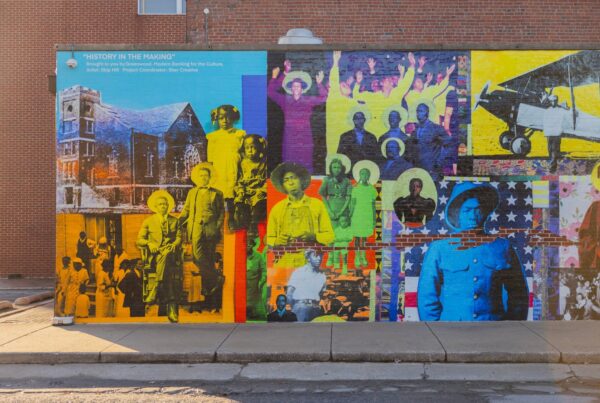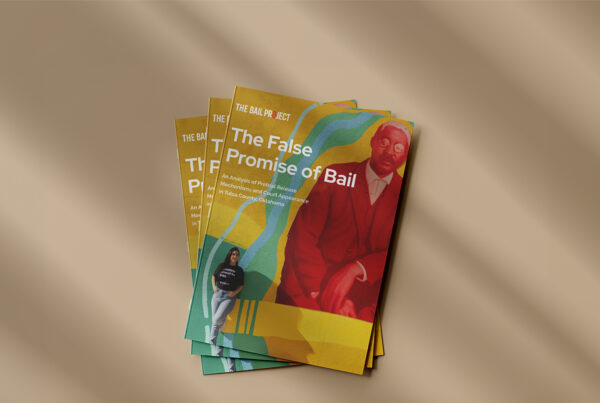If you’ve ever seen a courtroom show on television, you’re familiar with the scene: a prosecutor recites a list of violent crimes; the judge slams their gavel down, saying, “Bail is set in the amount of…”; and then you hear a very, very high number. As we’ve discussed, TV gets a lot wrong about the criminal legal system. And this courtroom scenario is no exception. Viewers are left with the impression that the only people who are held in jail on bail are the ones who are charged with serious offenses, like murder – when in fact, the majority of people jailed pretrial who cannot afford their bail are charged with minor offenses.
The truth about cash bail is that it affects millions of people per year – all of them presumed innocent and most of them charged with nonviolent offenses. Most people who end up in jail are there not because they were charged with a serious crime, but because they can’t afford the cash bail required for their release. In 2023, more than two-thirds of people held in local jails before trial were locked up due to nonviolent charges.
Missed Court Dates Can Lead to Pretrial Incarceration
For instance, thousands of people every year are held in jail solely because they missed a court date, like our clients, Lisa and Ashley. Both women were incarcerated, with bail set, because they had missed their court dates on prior cases. We all miss a date here and there – a dentist appointment, a scheduled call with a friend. But for Lisa and Ashley, their missed court dates led to high, unaffordable bail amounts.
Traffic Offenses Can Lead to Pretrial Incarceration
Across the country, people are regularly incarcerated pretrial because of traffic offenses. In Michigan, a pregnant woman was arrested for driving with a suspended license – her first driving-related offense. Her bail was set at $10,000, despite the fact that she was eight months pregnant. She couldn’t afford bail, and so when she went into labor five days after her arrest, she was forced to give birth on the floor of the jail – all because of a traffic charge. In Wisconsin, a man spent 84 days in jail on suspended license charges, even though when the police stopped the car, he wasn’t driving – or in the vehicle at all. Had the man been able to afford his $5,000 bail, he would not have spent 84 days in jail for a traffic case that was eventually dismissed by the prosecutor. Locking these individuals up doesn’t promote public safety, it only harms people’s lives.
Shoplifting Can Lead to Pretrial Incarceration
Do you know someone who has shoplifted? Most of us do – whether as a kid or an adult, it’s a fairly common petty offense. In 2022, in the wake of a pandemic that has left so many people strapped for cash and unable to provide for their families, more than 15,000 people in New York were charged with petit larceny, the most common form of which is shoplifting. Over 2,000 of them had bail set in their cases. Similarly, in Tennessee, a woman charged with taking less than $250 of merchandise from a store had her bail set at a staggering $142,750. These circumstances are a far cry from the felony smash-and-grab robberies you may have seen being sensationalized in the media.
Judges have a tremendous amount of power in setting bail amounts – and unfortunately, judicial discretion often works against poor people and people of color. People who sit in jail unable to afford bail suffer a host of collateral consequences – losing jobs and wages, facing housing insecurity, and even losing custody of their children. This is why so many people facing unaffordable cash bail give up their right to a fair trial and end up taking plea deals.
Bail affects people charged with serious crimes, as well as those charged with minor offenses – it’s a part of the criminal legal system that hurts anyone who doesn’t have the money to pay.
The Bail Project’s goal is to create a more equitable pretrial justice system, which means advocating for policies that steer us away from cash bail. Cash bail is unjust, and creates systemic disparities based on race and class – not safety or second chances. This inequality rings true for low-level offenses and also for more serious charges. So next time you forget to pay a bill, let your car insurance lapse, roll through a stop sign, or accidentally grab an extra apple at the store without paying for it – just remember, your actions are no different from those of the thousands of people who are ensnared in the pretrial system every year for low-level charges. You shouldn’t be jailed if you can’t afford bail, and neither should they.
Thank you for reading. The Bail Project is a 501(c)(3) nonprofit organization that is only able to provide direct services and sustain systems change work through donations from people like you. If you found value in this article, please consider supporting our work today.












